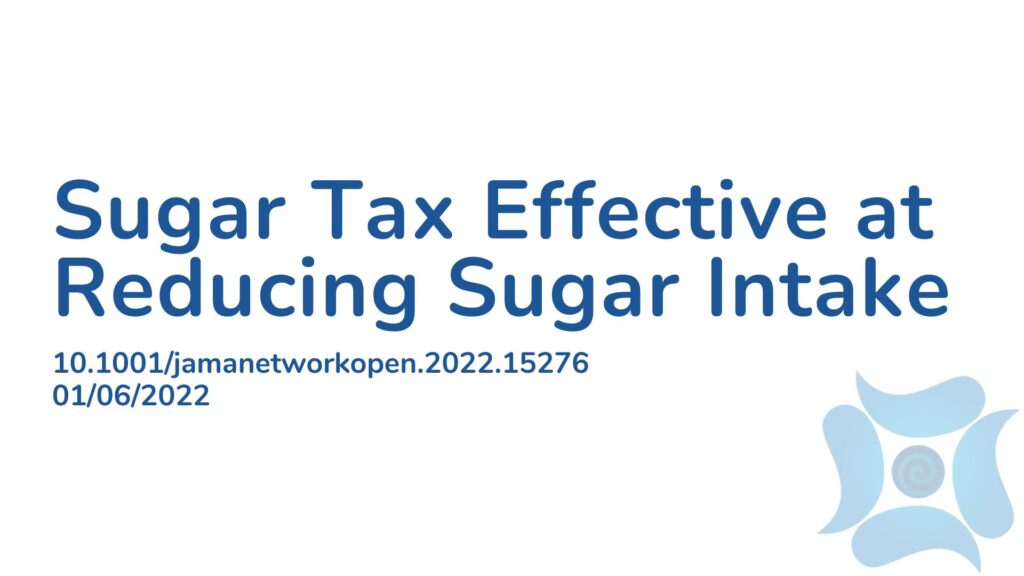Summary:
It is estimated that 40% of noncommunicable diseases can be attributed to dietary behaviours. There is also strong evidence that excessive sugar consumption in children and adults has an increased risk of weight gain, type 2 diabetes, cardiovascular disease, dental caries and osteoporosis. To improve nutrition, a public health intervention to tax sugar-sweetened beverages has been implemented in more than 45 countries. This study is a review of the literature on the implemented sugar taxes worldwide and their outcomes and assesses its efficacy in reducing sugar intake. This review found that globally consumers respond to price reductions, resulting in less consumption, however health impacts as a result of this have not been clearly documented. Further research on sugar taxes is needed to understand its role on health outcomes.
Abstract:
Importance: More than 45 countries and several local jurisdictions have implemented sugar-sweetened beverage (SSB) taxes to improve nutrition and population health, and evidence on their outcomes to date is essential to inform policy discussions. Responding to this need, the World Health Organization commissioned a systematic literature review on the outcomes of fiscal policies, including SSB taxes. Objective: To assess the associations of implemented SSB taxes with prices, sales, consumption, diet, body weight, product changes, unintended consequences, health, and pregnancy outcomes. Data Sources: Searches of 8 bibliographic databases (Business Source Complete, Cochrane Central Register of Controlled Trials, Cochrane Database of Systematic Reviews, CINAHL, EconLit, PsycINFO, PubMed, and Scopus) were performed from database inception through June 1, 2020, with no language or setting restrictions. Grey literature was assessed using 14 sources and government websites. Study Selection: The review included primary studies of implemented SSB taxes. Data Extraction and Synthesis: The review followed the Preferred Reporting Items for Systematic Reviews and Meta-analyses guidelines. For prices, sales and consumption, results were meta-analyzed using a 3-level random-effects model. Study quality was assessed at the outcome level. Main Outcomes and Measures: Tax pass-through rate for prices, percentage reduction in SSB demand, and price elasticity of demand for sales and consumption. Heterogeneity was assessed using τ2 and the I2 statistic.Results: A total of 86 articles were eligible, with 62 studies contributing to the meta-analysis. The overall tax pass-through rate was 82% (95% CI, 66% to 98%; P < .001, I2 = 99%), suggesting tax undershifting. The demand for SSBs was highly sensitive to tax-induced price increases, with the price elasticity of demand of −1.59 (95% CI, −2.11 to −1.08; P < .001; I2 = 100%) and a mean reduction in SSB sales of 15% (95% CI, −20% to −9%; P < .001; I2 = 100%). There was no evidence of substitution to untaxed beverages, and changes in SSB consumption were not significant. The narrative synthesis found reformulation and reduced sugar content of taxed beverages for tiered taxes, cross-border shopping in most studies of local-level taxes, and no negative changes in employment. Data on the heterogeneity of SSB tax outcomes across subpopulations were limited.Conclusions and Relevance: In this systematic review and meta-analysis of implemented SSB taxes worldwide, SSB taxes were associated with higher prices and lower sales of taxed beverages.
Article Publication Date: 01/06/2022
DOI: 10.1001/jamanetworkopen.2022.15276



